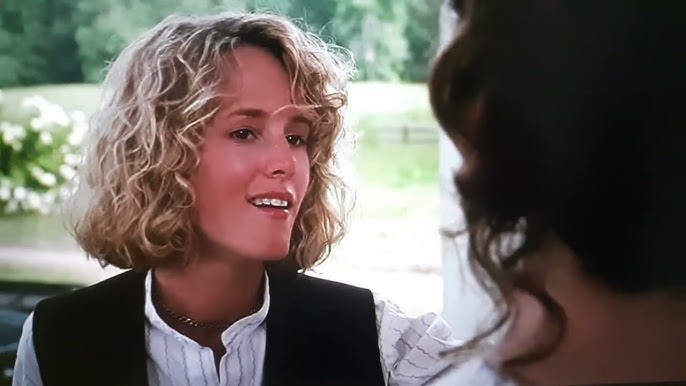
In a cinematic landscape often dominated by youth and glamour, Fried Green Tomatoes stands apart as a rare and deeply empathetic portrayal of older women’s lives — their pain, humor, power, and most importantly, their relevance.
The film doesn’t just include elderly characters — it centers them, challenges stereotypes about aging, and reminds us that wisdom, agency, and emotional depth do not vanish with wrinkles.
Evelyn & Ninny: Two Women at the Crossroads of Life
The story begins with Evelyn Couch, a middle-aged woman slipping into emotional invisibility.
When she meets Ninny Threadgoode, a spry, outspoken elderly woman in a nursing home, their relationship quickly transcends the superficial.
Through Ninny’s stories of life in Whistle Stop, Evelyn rediscovers parts of herself she thought were gone: courage, spontaneity, and joy.
What’s remarkable here is that Ninny is not treated as a prop or a quirky elder — she is the emotional and narrative engine of the film.
Her stories give structure and meaning to Evelyn’s transformation, showing that the past still has work to do in the present.
The Power of Women’s Oral History

Fried Green Tomatoes is, in many ways, a celebration of oral storytelling, particularly as it exists among women.
Ninny doesn’t read from books or preach from a pulpit — she speaks from memory, from experience, and from love.
These aren’t just tales; they’re survival manuals, coded lessons in:
-
how to challenge injustice quietly,
-
how to hold onto joy amid grief,
-
and how to love someone even when the world tells you it’s wrong.
Through this transmission of story, the film honors the long history of female resilience passed down between generations, often outside of official records or male-dominated institutions.
Aging Without Apology
In a culture that often sidelines or caricatures older women, Fried Green Tomatoes gives us characters like:
-
Ninny, who is not senile or bitter but vibrant, cheeky, and sharp.
-
Sipsey, who is old and small, yet physically strong enough to protect a child and morally strong enough to commit a bold act of justice.
-
Even the off-screen memory of Idgie, who ages outside the bounds of expectation — still wild, still full of spirit.
These portrayals are radical in their refusal to make age a limitation. The older women in this film are not waiting to die — they’re actively shaping the world.
Generational Legacy as Rebellion
Through Ninny’s mentorship, Evelyn’s shift from submissive to self-possessed isn’t just personal — it’s political.
She takes on the rebellious spark of the Whistle Stop women before her, proving that legacy is not just about biology but about chosen emotional lineage.
This theme resonates deeply: even if you weren’t born into a family of trailblazers, you can inherit courage through community, friendship, and storytelling.
What the Film Says About Society’s View of Older Women
Fried Green Tomatoes quietly critiques how society treats elderly women:
-
Nursing homes, though necessary, are depicted as isolating and dismissive.
-
Marriages can become spaces of invisibility for women as they age.
-
Social norms often rob older women of voice, agency, and dignity.
But the film also suggests that these forces can be resisted — through humor, through kindness, and above all, through refusing to be silent.
Aging as Aliveness
In a story about fried tomatoes and dusty towns, Fried Green Tomatoes delivers a powerful message:
Aging is not a slow death — it is a deeper kind of living.
Older women in this film are not lessons or sidekicks — they are leaders, full of laughter and fire.
Their stories don’t just shape other lives — they change the course of them.
And perhaps that’s what makes the film so enduring.
It reminds us that the richest stories are often told in soft voices, long after others have stopped listening.
